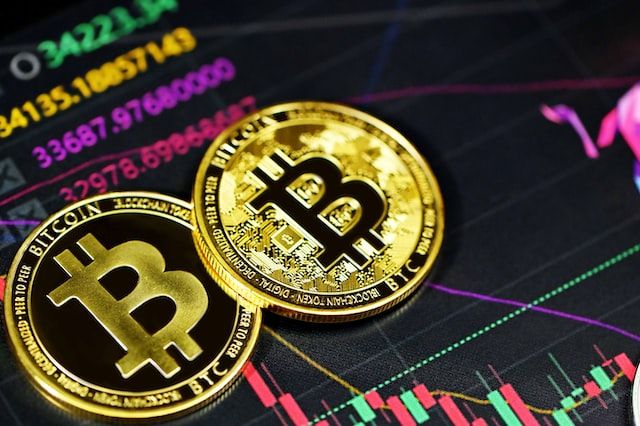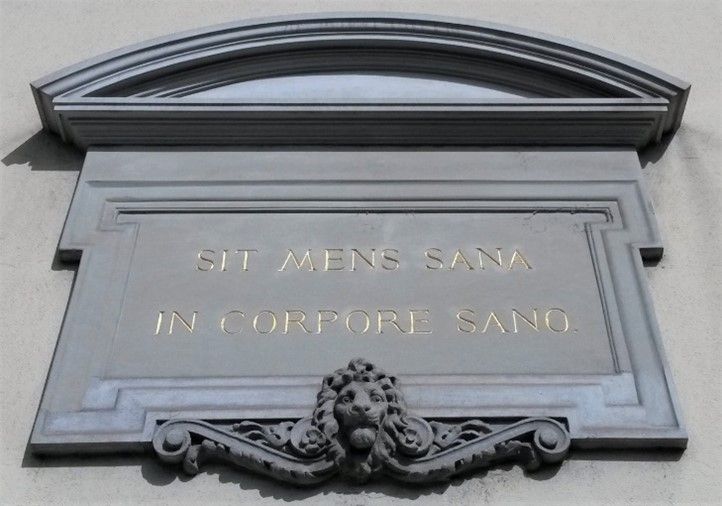It’s 10:00 p.m. — Do You Know Where Your Crypto Is?

Greetings friends.
Before we jump into our main topic, it is a pleasure to highlight this week's Guest post from my friend Dr. Alexander Brunner. A long-serving judge for the Zurich Supreme Court, Dr. Brunner was a student in one of my classes.
It will become clear upon reading his wonderful post that Dr. Brunner is a student of life. He is also a fine teacher sharing his learnings, if only we are open to hearing them.

And now we turn to the wild world of crypto.
The main virtue of the technology underpinning crypto is its transparency. The decentralized public ledger that records blockchain transactions is secure because it is immutable and public.
How ironic, then, that lack of transparency is also the greatest risk associated with cryptocurrency and its promoters.
What We Don’t Know
Not all crypto exchanges will fail. Not all exchange operators are amateurs operating with loose internal controls.
Not all tokens will be rendered worthless. Not all cryptocurrency creators are criminals running fraudulent enterprises.
However, looking at past technology and investment bubbles, we can predict that most crypto investment vehicles will fail, and the large majority of tokens will end up being worthless.
We simply don’t know which ones are which.
What We Can’t Be Sure Of
“Bitcoin is pretty likely OK,” you might be thinking. At least in the sense that it is not a worthless token created by fraudsters looking for a quick gain from gullible investors.
That’s true. But here are several things we can’t be sure of (although I give you the most likely answer):
- Is the wallet I’m storing my Bitcoin in safe from hacking? (No)
- Can the exchange I’m using to buy or sell Bitcoin divert my transaction or appropriate my tokens? (Yes)
- Does the exchange operate in compliance with all laws? (Probably not)
- Are some individuals using the exchange for money laundering and other illegal activities? (Yes)
- Can my exchange be shut down by regulators without notice? (Yes)
- Do I have any rights against my exchange or anyone else in case I lose money? (Very few)
Let’s Look at the Best and Biggest
Binance is the world’s largest crypto exchange. They process some half of crypto spot trading and a higher percentage of derivative trading. Binance aims to be “the infrastructure service provider in crypto.”
The crypto world is aware it has a credibility problem. A string of hacks, frauds, and failures have rattled even the steeliest-nerved investors. According to Chainalysis, 2022 saw $3.8 billion stolen in crypto hacks.
Thus it was in November 2022 that Binance announced its Commitment to Transparency, where they shared details of their wallet addresses. Concerned investors could look for themselves at the Bitcoin, Ethereum, Binance Stablecoins, and other tokens Binance holds.
That was followed not long after with a Proof of Reserves system, with results of an audit as of November 22.

Laudable transparency, right? While we should applaud the efforts, don’t feel too comfortable. Here’s what we’re still not seeing:
- What exactly is Binance? Is it a company? A group of companies? Does it operate in China, the Cayman Islands, or the British Virgin Islands? All three? Somewhere else?
- Is Binance profitable? How do they make money? Do they make loans? Do they have indebtedness? Have they released any public financial statements?
- Who owns the market makers that operate on the platform? Are there any conflicts of interest between the market makers, the exchange, and the customers?
- Are any of these companies involved with the exchange licensed or registered? Do any of them comply with any third-party rules or regulations? Whose?
- What internal controls do Binance and its affiliates apply to their operations? Is any part of their operation audited by independent auditors?
- What does it mean that the one firm Binance found to review its Proof of Reserves system subsequently suspended its work for Binance and for crypto exchanges generally?
Even if none of these issues deter you, ask yourself just this one question: Is there anything to prevent Binance from draining 100% of the assets in all of their wallets?
This is not to pick on Binance. They are leading the way in trying to address concerns about crypto transparency. The list of open issues for the market leader suggests, however, the industry has a long way to go.
What’s My Recourse if Something Goes Wrong?
There’s less doubt about this one. I’m a corporate lawyer and I spent a career drafting contracts to manage and limit risks.
My conclusion from studying the Binance terms of use: You are almost certainly without recourse if you lose everything.
Look at what Binance says in its General Risk Warning (excerpts only):
F. Market Risks — Changes in value may be significant and may occur rapidly and without warning.
G. Liquidity risk — Digital Assets may have limited liquidity which may make it difficult or impossible for you to sell or exit a position when you wish to do so.
I. Availability Risk — It may not be possible for you to buy, sell, store, transfer, send or receive Digital Assets when you wish to do so.
J. Third Party Risk — Binance may not be responsible for any loss that these third parties may cause to you.
K. Security Risk — It is not possible for Binance to eliminate all security risks. Transactions in Digital Assets may be irreversible, and losses due to fraudulent or unauthorised transactions may not be recoverable.
L. Risks related to Digital Assets — there are a number of intrinsic risks, including but not limited to:
a. faults, defects, hacks, exploits, errors, protocol failures or unforeseen circumstances
b. losses due to fraudulent or accidental transactions may not be recoverable
Crypto Isn’t As Transparent as I Thought. What Now?
That’s up to you to decide. I don’t know any better than you do which tokens are scams or which exchanges will be next to fail.
What I do know is nothing about crypto trading is as transparent as the blockchain it’s based on. Make of that what you will.
Do you have cryptocurrencies? Are you keeping them?
Be well.
Hit reply to tell me what's on your mind or write a comment directly on Klugne. If you received this mail from a friend and would like to subscribe to my free weekly newsletter, click here.
I posted a version of this article on Medium originally.







Member discussion